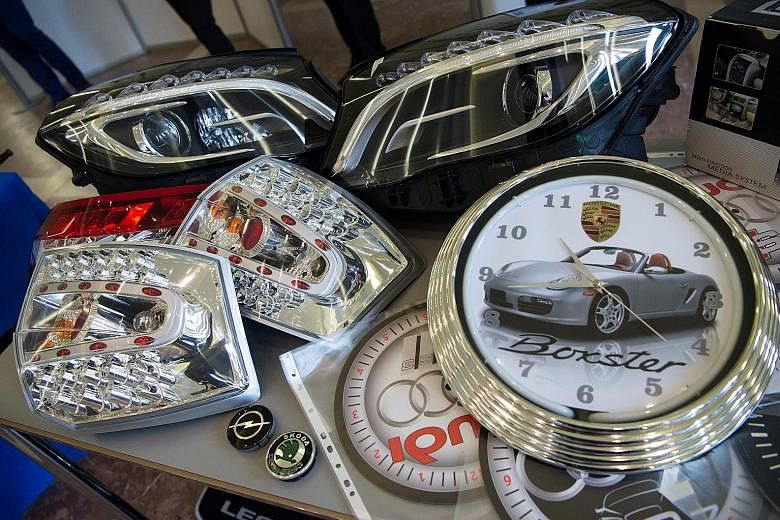PARIS • Counterfeit and pirated goods accounted for up to 2.5 per cent of world trade, or as much as US$461 billion (S$625 billion), significantly damaging companies and state coffers, the Organisation for Economic Cooperation and Development (OECD) said yesterday.
The trade in fake products, such as Louis Vuitton bags or Nike shoes, has also worsened in the past decade, with a previous OECD study in 2008 estimating it at up to 1.9 per cent of world imports, or US$200 billion, reported Reuters.
The impact of counterfeiting is greater on rich countries - where most of the companies making the highly desirable branded goods are based - with the European Union importing up to 5 per cent of fakes in 2013, or as much as US$116 billion. Total imports in world trade in 2013 was US$17.9 trillion.
The study, which analyses nearly half a million Customs seizures around the world from 2011 to 2013, found American, Italian and French brands the hardest hit, with many of the proceeds going to organised crime.
Another OECD study last year concluded that the trade in fakes - everything from rip-offs of Microsoft software to sham cancer therapies - was almost the world's most profitable criminal activity, with revenues of US$250 billion (outstripped only by narcotics), according to The Economist Espresso, a daily news update by the magazine. By comparison, trade in small arms and light weapons is worth just US$1 billion, it said.
In the latest study by the Paris-based think-tank, China appeared as the largest producer of fakes, but the intellectual property rights of Chinese companies were also frequently infringed, reported Reuters.
Singapore ranked third, after Turkey, accounting for 1.9 per cent of total seizures in 2013.
The study also found postal parcels to be the top method of shipping bogus goods, accounting for 62 per cent of seizures, reflecting the growing importance of online commerce in international trade.
The traffic goes through complex routes via major trade hubs like Hong Kong and Singapore, and free-trade zones such as those in the United Arab Emirates, it said.

